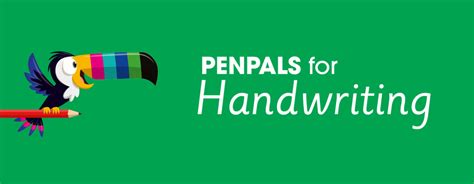Writing
Creating a 'Can Do' ethos for all!

Our Intent
At Strand Academy we strive for all our pupils to develop into creative and competent writers.
We enable our children:
To write clearly, accurately and confidently for a variety of purposes and audiences;
To develop a consistent, clear, fluent, joined handwriting style and to be aware of the importance of presentation in order to communicate effectively;
To understand the conventions of writing, including grammar, punctuation and spelling;
To plan, draft and edit their writing;
To enjoy writing and feel valued as writers and
To appreciate the writing of others.
We achieve this through the Talk for Writing approach. It enables pupils of all ages and abilities to learn to write a wide range of stories and varying text types that are progressive through the years. The multi-sensory and interactive teaching activities used include:
Listening to and learning texts and stories;
Taking part in drama and role-play;
Drawing and story mapping;
Using exploratory and presentational talk:
Collecting words and language strategies;
Building their working knowledge of grammar;
Taking part in debating and discussion.
Talk for Writing is an innovative approach to teaching writing. It was developed by the literacy specialist and writer Pie Corbett. It uses high quality model texts to introduce the pupils to different story/text types. They then learn these off by heart and scrutinise with a writer’s critical eye.
They learn the underlying structures and the process of planning using story maps. They also learn about the key strategies for creating interesting characters and settings. They learn to use a range of sentence types and literary devices to create different effects including suspense or adventure.
Talk for writing has three key phrases which work together to develop knowledge, confidence and independence in writing.
Imitation and Immersion
Talk for Writing units begin with a hook which fires up the creativity and imagination of the children before they are immersed in the model text.
During this phase, the pupils learn the text using actions and story maps. The key to success for the pupils is that they internalise the text type through repetition and rehearsal. They explore the structure of the narrative and investigate the different characters, settings and events. They also begin to look closely at the language used and the effects this has on the reader. The pupils ‘read as a reader’ and ‘read as a writer’ during this process. The classroom becomes a dynamic, interactive resource filled with word ideas, sentence types and language tools collected by the pupils to use in their stories later.
Innovation
During this phase, the teacher and the pupils begin to change aspects to model the text using their own ideas. They explore the text using different characters, settings or events and develop new ideas for descriptive language whilst sticking closely to the underlying structure.
It is during this phase that the pupils work using their toolkits. The toolkits, based on the features and ingredients of the model text, remind pupils of the different strategies they could use in their stories and helps them to see the progress they are making.
Invention
During the invent stage, the pupils plan and write their own story based on the text type they have been learning. They experiment with the ideas and begin to explore their own style of writing – they are able to do this by hugging the original model text tightly or they can develop in their own way – flying away from the text.
In order to develop independence, we have take part in different competition throughout the year. This provides the pupils with the opportunity to have more freedom and choice with their writing. The teacher, The pupils will then plan their own piece of writing, with varying support from the teacher, using a text map and will then independently create and edit a piece of writing publishing it into mini-books. Some of our current pupils have their writing recorded by actors and stored in the British Library for all to hear.
Implementation
Writing in the academy.
Lessons are planned and delivered through a range of Talk for Writing (TfW) units. They are based on the ‘Talk for Writing’ (TfW) ethos and structure which enables children to learn the language and structure of a range of genres and internalise them before writing their own pieces.
Shared and Guided Writing are used as strategies regularly within writing lessons to enable children to see what is needed in their own writing. These are vital stages in the development of imagination and creativity.
Writing is done daily.
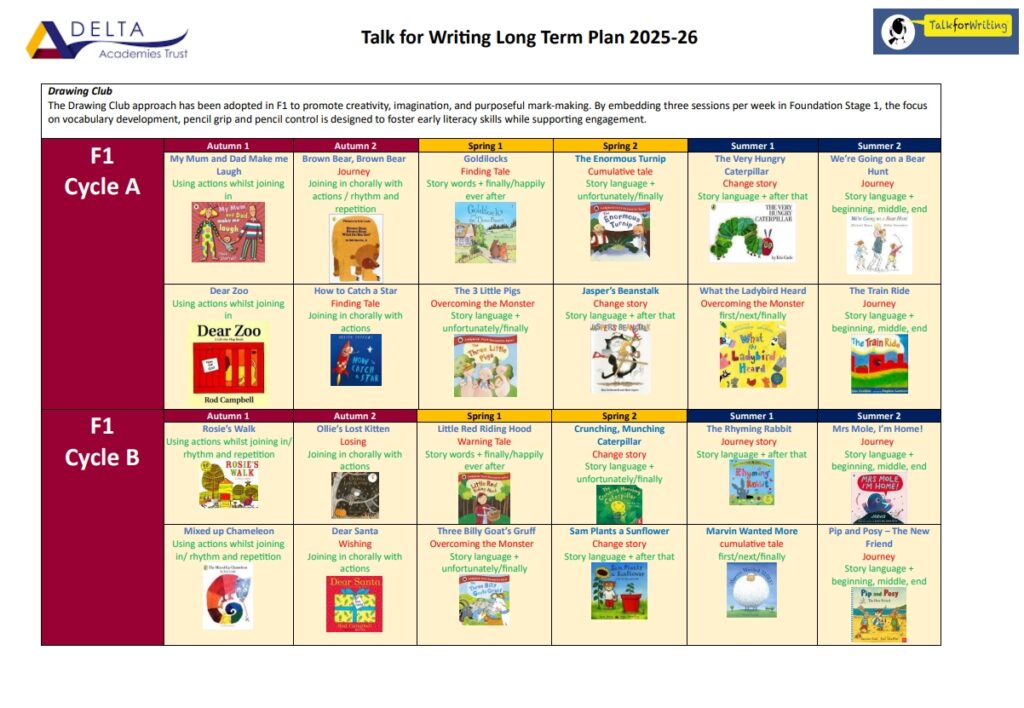
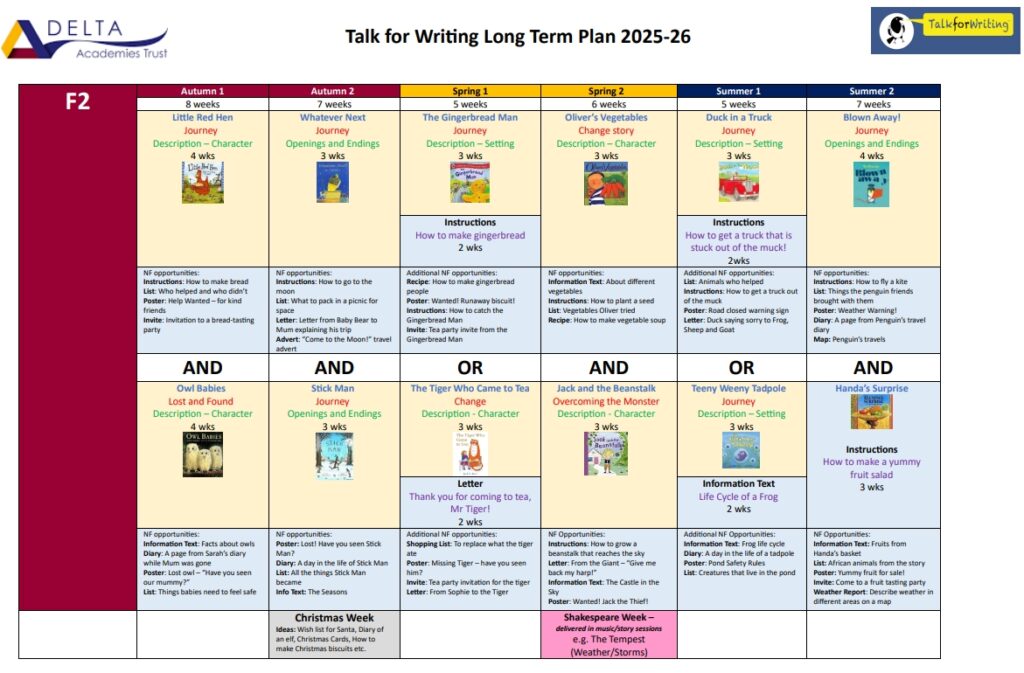
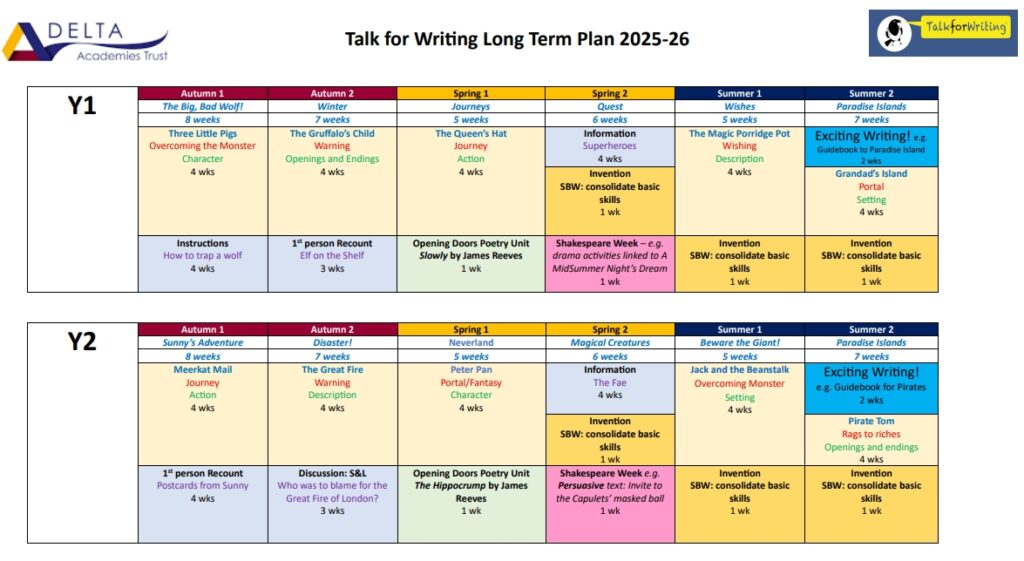
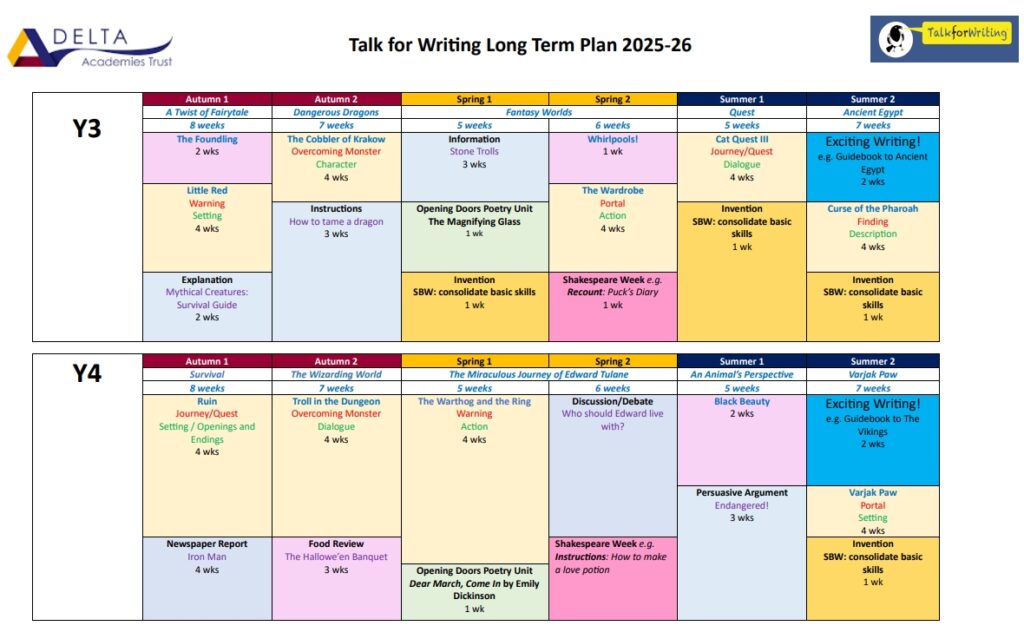
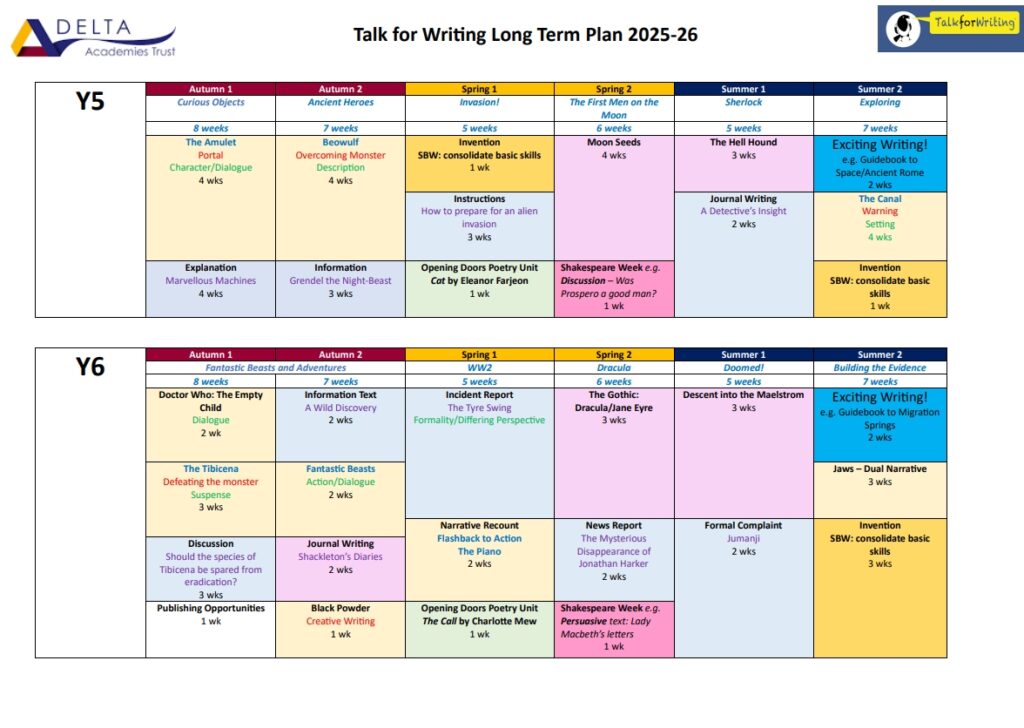
Grammar, Punctuation and Spelling
Grammar, Punctuation and Spelling is taught through our writing pathway. We interweave it within our teaching of different writing genres so our children can apply it in meaningful ways building on previous learning.
Spelling is also taught discreetly through the specific spelling lessons and interventions for targeted children.
- In EYFS and KS1, this is taught through Read Write Inc. and common exception words are practiced.
- In KS2, children practice reading, writing age, and year group appropriate spellings using Emile.
Emile is a software which supports progression in spelling. Students are engaged by an enchanting adventure, crazy characters, enthralling game modes, ultra competitive class competitions, school leaderboards for most effort & most improved, reward systems that encourage more use and trophies to display. All these features lead students to wanting to answer questions, explore new concepts or revisit known topics. The more questions they answer, the more we know what questions to allocate and the more we can tell teachers with what area their class need help.
- Spellings are practiced regularly in and out of spelling sessions and assessed each half term.
